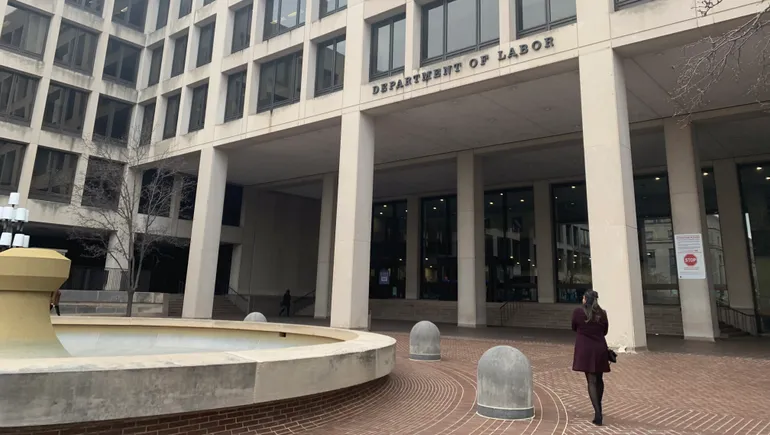A longtime law professor at the University of Colorado at Boulder who is also a prolific critic of legal education is suing the institution, saying it is discriminating against him because he is Latino.
Paul F. Campos alleges that Boulder’s law school has failed to offer an explanation or recourse for a poor evaluation he received last year, and his complaint in the U.S. District Court for the District of Colorado stakes that treatment on his ethnicity. Campos has also been an outspoken critic of the legal-education industry and specifically of what he characterized in his lawsuit as the Boulder law school’s “reckless financial behavior,” which he says has made him “quite unpopular” with colleagues.
To Campos, who has written for The Chronicle, the retaliation he claims to have faced in recent years reflects a decade spent criticizing legal education from the inside, including on a blog he wrote from 2011 to 2015 called Inside the Law School Scam, and pointing out in faculty meetings what he saw as financial mismanagement at his home institution.
That Campos is Latino only expands the “target on my back,” he told The Chronicle. “If you are a whistleblower, naturally it makes you unpopular in a variety of ways. But if you’re nonwhite and also a whistleblower, that’s kind of two strikes against you,” Campos said. “I think my own experience indicates the extent to which my white colleagues are willing to put up with criticism about the basic finances of the institution from a nonwhite colleague. And the answer is they’re pretty much not.”
But others say Campos’s history of disparaging his industry and his own institution has damaged his reputation and, in turn, made his lawsuit difficult to take seriously.
In May 2022, Campos alleges, he received an unusually low grade — three out of five — for his performance in the previous calendar year. Just 2.3 percent of law faculty received a rating that low over a four-year period, Campos alleges in his complaint. That rating came from a peer-review committee that makes recommendations on evaluations to the dean, Lolita Buckner Inniss. It came as a surprise to Campos, who wrote in a blog post that he’d had a particularly successful year in both publishing and service (Campos did not teach in 2021, having been on parental leave during one semester and on sabbatical for the other).
When Campos asked the reason for the low rating, the chair of the review committee, Pierre Schlag, did not provide an answer, according to Campos’s complaint. Nor did Inniss. In a meeting, Campos told her he believed his rating had been influenced by racial bias and his reputation as a critic of the law school’s financial management, and asked Inniss to independently evaluate his performance.
If you are a whistleblower, naturally it makes you unpopular in a variety of ways. But if you’re nonwhite and also a whistleblower, that’s kind of two strikes against you.
Inniss refused, he said, although university policy would have allowed her to do so. In that conversation, Campos told The Chronicle, Inniss said she hadn’t been at the university long enough to evaluate his performance — she arrived at Boulder in July 2021 — and that she was sure the law school “isn’t the kind of place” that would discriminate against him based on his ethnicity.
Schlag, the review-committee chair, and Inniss did not respond to requests for comment, nor did other members of the review committee contacted by The Chronicle. The university recently became aware of Campos’s lawsuit and “must review it and determine the appropriate course of action,” a spokesperson wrote in an email, saying the institution was unable to comment further.
‘Not Afraid of Litigation’
When Campos told Inniss he was considering legal action, he added, she replied that she was “not afraid of litigation.” From there, in Campos’s telling, the retaliation escalated. Inniss removed him from the law school’s evaluations committee, citing “your recent communications with me regarding your concerns with the law-school evaluation process and your indication of possible litigation,” according to an email quoted in Campos’s complaint. Campos was also removed from teaching a property-law course in the spring of 2023, on grounds that he’d made “racially offensive and gender-biased” comments in class the previous year. (Campos said the university hasn’t provided evidence that he did so and that a thorough review of video recordings of his classes showed he had not.)
Campos said his history of being discriminated against at Boulder stretches back further. According to the complaint, a university-pay study in 2021 found that he was being underpaid relative to his white colleagues, by $13,756 each year. That discrepancy is even more pronounced, Campos’s lawsuit says, because he is the most-senior law faculty member without an endowed professorship.
Among those leery of Campos’s lawsuit is Brian Leiter, a professor of jurisprudence at the University of Chicago and a frequent commentator on law-school happenings. In a post on his own blog Monday, Leiter called Campos’s discrimination claims “weak” and his allegations of retaliation “not much stronger.” The former, he said, are undercut by the fact that Inniss is Black and the law school’s previous dean was Native American.
“But the real question,” he told The Chronicle, “is whether there is a nondiscriminatory explanation for how the school is treating him. It seems to me there’s a pretty obvious one, which is that he’s not doing a lot of legal scholarship.” Instead, Leiter said, Campos has published books on obesity and the experience of being a sports fan.
“I think you’d be hard-pressed to find a lot of law professors who have a favorable impression of him,” Leiter said of Campos. “The general view is he’s kind of opportunistic. He likes to be in the limelight, he likes to be in the newspapers, he likes to attract attention to himself.”



















Discussion about this post